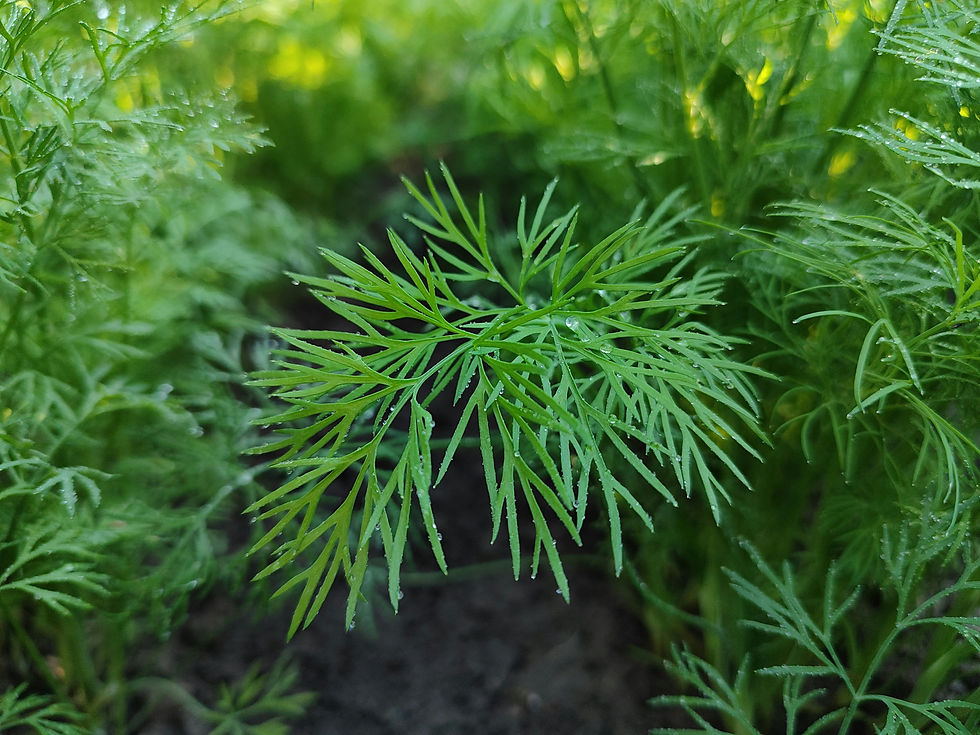The Ultimate Guide to Organic Fertilizers and Soil Enhancers
- Jonathan Valencia

- Oct 6, 2025
- 7 min read

Organic gardening is a rewarding approach for anyone who wants to grow healthy plants while maintaining soil vitality and protecting the environment.
At the heart of organic gardening lies the use of organic fertilizers and soil enhancers, indispensable tools that enrich the soil naturally without relying on synthetic chemicals. Whether growing vegetables, flowers, or houseplants, understanding organic fertilizers and soil amendments can transform gardening success.
This guide covers everything needed—from what organic fertilizers are, their diverse types, benefits, how to apply them correctly, to popular soil enhancers that boost garden productivity.
What Are Organic Fertilizers?
Organic fertilizers are nutrients derived from natural sources such as plant residues, animal manure, compost, or mineral deposits. Unlike synthetic fertilizers, which are chemically produced and water-soluble, organic fertilizers release nutrients slowly as microorganisms break them down over time, promoting sustained nutrition for plants.
Common organic fertilizers include compost, manure, blood meal, bone meal, cottonseed meal, and worm castings. These materials add essential macronutrients like nitrogen (N), phosphorus (P), and potassium (K), as well as micronutrients that support plant growth and soil health.
Benefits of Using Organic Fertilizers
Using organic fertilizers offers numerous advantages for both plants and soil:
Improved Soil Structure: Organic matter enhances soil texture by increasing aeration and water retention, leading to better root development.
Slow Nutrient Release: They provide nutrients gradually, reducing the risk of nutrient burn and leaching into groundwater.
Supports Beneficial Microorganisms: Organic fertilizers feed soil microbes that help decompose organic matter and make nutrients available to plants.
Environmentally Friendly: By avoiding synthetic chemicals, they reduce pollution and promote sustainable gardening.
Enhances Soil Fertility Long-term: They contribute to the buildup of humus, which maintains soil nutrient reserves.
However, organic fertilizers may have lower nutrient concentration compared to synthetic ones and require proper application to avoid nutrient deficiencies or imbalances.
Key Types of Organic Fertilizers
Organic fertilizers come in various types based on their sources and nutrient profiles:
1. Plant-Based Fertilizers
These include materials derived from plants, offering nutrients and improving soil conditioning:
Compost: Decomposed organic material rich in nutrients and beneficial microbes. It can be made from kitchen scraps, yard waste, and garden residues. Compost improves soil structure and nutrient availability.
Alfalfa Meal: A nitrogen-rich fertilizer that also contains potassium. It is excellent for spring soil preparation and supports healthy plant growth.
Cottonseed Meal: Contains about 6% nitrogen alongside phosphorus and potassium. It is good for acid-loving plants and acts as a slow-release fertilizer.
2. Animal-Based Fertilizers
Sourced from animal byproducts, these fertilizers add nutrients and organic matter:
Manure: From cows, horses, poultry, and other animals, manure adds nitrogen and organic matter, improving soil fertility. It must be properly composted to avoid pathogens and nutrient imbalances.
Blood Meal: A high nitrogen fertilizer that breaks down over weeks, providing a quick nitrogen boost.
Bone Meal: Rich in phosphorus and calcium, it supports root development and flowering.
Worm Castings: Produced by earthworms, these castings are rich in nutrients and microbial life, improving soil texture and fertility.
3. Mineral-Based Fertilizers
Natural mineral deposits can be added as soil amendments:
Greensand: Derived from marine minerals, it supplies potassium and trace minerals slowly over time.
Kelp Meal: Made from seaweed, kelp meal is a source of micronutrients and growth stimulants, improving stress tolerance.
Biochar: Charcoal used as a soil amendment improves soil aeration, water retention, and microbial activity.
Popular Organic Soil Enhancers
Soil enhancers improve soil conditions beyond supplying nutrients. They optimize the soil environment for plant growth:
Compost: As mentioned, compost is both a fertilizer and soil enhancer that boosts organic content.
Manure: Adds organic matter and nutrients that enhance soil structure.
Vermicompost (Worm Castings): Rich in beneficial microbes, it improves nutrient cycling.
Coco Fiber (Coco Peat): A byproduct of coconut husks, it enhances moisture retention and aeration in soil.
Gypsum: Adds calcium and sulfur, improving soil structure and reducing compaction.
Epsom Salt: Supplies magnesium and sulfur, essential for photosynthesis and enzyme function.
How to Choose the Right Organic Fertilizer
Choosing a fertilizer depends on the specific needs of your soil and plants:
Soil Testing: Conduct soil tests to determine nutrient deficiencies and pH.
Plant Type: Some plants require specific nutrients, such as acid-loving plants benefiting from cottonseed meal.
Nutrient Content: Look at the N-P-K ratio to understand nitrogen, phosphorus, and potassium levels.
Release Rate: Slow-release fertilizers are better for sustained growth; quick-release may be used for immediate needs.
Availability and Cost: Some organic fertilizers are readily available, while others may be homemade or more costly.
How to Apply Organic Fertilizers Effectively
Proper application ensures maximum benefit to plants and soil:
Application Rate: Follow recommended nutrient amounts based on soil tests. For example, 3 pounds of actual nitrogen per 1,000 square feet per year is a benchmark for vegetable gardens.
Timing: Apply some fertilizers before planting to prepare soil, others during the growing season for boosting growth.
Incorporation: Mix fertilizers into the soil or apply as a top dressing depending on plant type.
Watering: Moisture helps activate organic fertilizers and nutrient uptake.
Avoid Over-Application: Excess nutrient supply can harm plants or lead to pollution.
DIY Organic Fertilizers to Make at Home
Many organic fertilizers can be made from kitchen and garden waste:
Banana Peels: Rich in potassium, chopped peels can be added to soil or compost.
Eggshells: Provide calcium when crushed and added to soil.
Compost Tea: A liquid fertilizer brewed from compost that enriches soil microbes.
Grass Clippings and Coffee Grounds: Excellent nitrogen sources for compost or direct soil application.
Top Organic Fertilizer Products on Amazon
For convenience and reliability, many gardeners purchase organic fertilizers from Amazon. Some popular options include:
Down to Earth Cottonseed Meal Fertilizer: Great for acid-loving plants with balanced N-P-K.
Vermis Terra Earthworm Castings: Non-toxic with rich nutrient and microbial content.
GAIA Green Organic Greensand Fertilizer: A slow-release potassium source.
Alfalfa Meal: For boosting nitrogen and potassium early in the season.
These products combine quality and ease of use, making them excellent choices for organic gardening enthusiasts.
Conclusion
Organic fertilizers and soil enhancers are vital for sustainable gardening, offering nutrient-rich, environmentally friendly ways to grow healthy plants. By understanding the types of organic fertilizers, their benefits, and proper application methods, gardeners can achieve vibrant gardens with fertile, living soil. Whether using homemade compost or trusted Amazon products, embracing organic fertilization enriches the garden and supports long-term soil health for years to come.
This article provides a comprehensive and structured overview that will engage readers while offering many opportunities to naturally incorporate Amazon affiliate product links related to organic fertilizers and soil enhancers.The Ultimate Guide to Organic Fertilizers and Soil Enhancers
Organic gardening offers a rewarding way to grow healthy plants by nourishing the soil naturally, avoiding synthetic chemicals, and promoting long-term soil health. At the heart of this approach are organic fertilizers and soil enhancers—essential tools for enriching the soil and supporting vibrant plant growth. This comprehensive guide explains what organic fertilizers are, explores their benefits, types, proper use, and highlights popular soil amendments that boost garden productivity.
What Are Organic Fertilizers?
Organic fertilizers are derived from natural sources such as decomposed plants, animal manure, compost, or mineral deposits. Unlike synthetic fertilizers that deliver nutrients immediately and in a water-soluble form, organic fertilizers release nutrients slowly over time as soil microbes break down the organic matter.
This slow release nourishes plants steadily and helps maintain soil vitality. Common examples include compost, manure, blood meal, bone meal, cottonseed meal, and worm castings, which contribute essential nutrients (nitrogen, phosphorus, potassium) and beneficial micronutrients to the soil.
Benefits of Using Organic Fertilizers
Using organic fertilizers enriches your garden soil and supports healthy plant growth with multiple advantages:
Improved Soil Structure: Organic matter enhances soil texture, increasing aeration and water retention, which encourages strong root growth.
Slow Nutrient Release: Nutrients are delivered gradually, reducing the risk of plant burn or nutrient runoff.
Supports Beneficial Soil Microbes: They feed microorganisms that decompose matter and unlock nutrients, fostering a living soil ecosystem.
Environmentally Friendly: Avoiding synthetic chemicals reduces pollution and promotes sustainable gardening.
Long-term Soil Fertility: They contribute to humus buildup, improving nutrient reserves over time.
While organic fertilizers provide these benefits, they often contain lower nutrient concentrations than synthetics and require careful application to avoid deficiencies.
Key Types of Organic Fertilizers
Organic fertilizers come from diverse sources and serve different roles in soil health:
Plant-Based Fertilizers
Compost: The "black gold" of gardening, made from decomposed kitchen scraps, yard waste, and garden residues, compost improves soil health and nutrient availability.
Alfalfa Meal: Rich in nitrogen and potassium, commonly used to prep soil in spring.
Cottonseed Meal: Contains about 6% nitrogen, ideal for acid-loving plants and acts as a slow-release fertilizer.
Animal-Based Fertilizers
Manure: From cows, horses, or poultry, manure enriches soil with nitrogen and organic matter. It must be well-composted to avoid pathogens.
Blood Meal: Supplies nitrogen quickly over several weeks.
Bone Meal: High in phosphorus and calcium for root health and bloom support.
Worm Castings: Nutrient-rich with beneficial microbes enhancing soil quality.
Mineral-Based Fertilizers
Greensand: A slow-release potassium and trace mineral source from marine deposits.
Kelp Meal: Provides micronutrients and growth stimulants to improve plant resilience.
Biochar: Charcoal used to boost soil aeration, moisture retention, and microbial life.
Popular Organic Soil Enhancers
Beyond nutrients, soil enhancers improve soil structure and function:
Compost, manure, and vermicompost increase organic matter and microbial activity.
Coco fiber improves moisture retention and aeration.
Gypsum enhances soil structure by adding calcium and sulfur.
Epsom salt supplies magnesium and sulfur, aiding photosynthesis and enzyme activity.
Choosing the Right Organic Fertilizer
Effective fertilization depends on soil tests, plant needs, and nutrient content. Soil tests reveal deficiencies and pH level, guiding nutrient choices. For example, acid-loving plants benefit from cottonseed meal. Look at N-P-K ratios on packaging to match plant nutrient demands. Slow-release options suit long-term nutrition, while quick-release fertilizers address immediate needs.
How to Apply Organic Fertilizers
Proper application is key:
Follow recommended nitrogen rates (approx. 3 pounds per 1,000 sq ft/year for vegetables).
Apply before planting or during growth for best results.
Incorporate fertilizers into soil or use as top dressing depending on the crop.
Water after application to activate nutrients.
Avoid excessive application to prevent nutrient imbalances or pollution.
DIY Organic Fertilizers at Home
Many organic fertilizers can be made easily:
Banana peels add potassium.
Eggshells provide calcium.
Compost tea enhances microbial life.
Grass clippings and coffee grounds add nitrogen.
Recommended Organic Fertilizer Products
For convenience, gardeners can purchase quality products online:
Product | Description | Best For |
Balanced N-P-K, ideal for acid-loving plants. | Strawberries, blueberries, shrubs | |
Non-toxic, rich in nutrients and microbes. | Indoor plants, flower gardens | |
Slow-release potassium source. | Lawns, ornamentals | |
Nitrogen and potassium boost. | Early spring soil preparation |
These products provide reliable, natural nutrition for organic gardens.
Embracing organic fertilizers and soil enhancers nurtures both plants and soil health sustainably.
By selecting the right products, applying them correctly, and understanding their benefits, gardeners can achieve lush, productive gardens while fostering a thriving ecosystem beneath the surface.
This ultimate guide serves as a foundation for gardeners eager to adopt organic practices that yield lasting results and environmental stewardship.































Comments